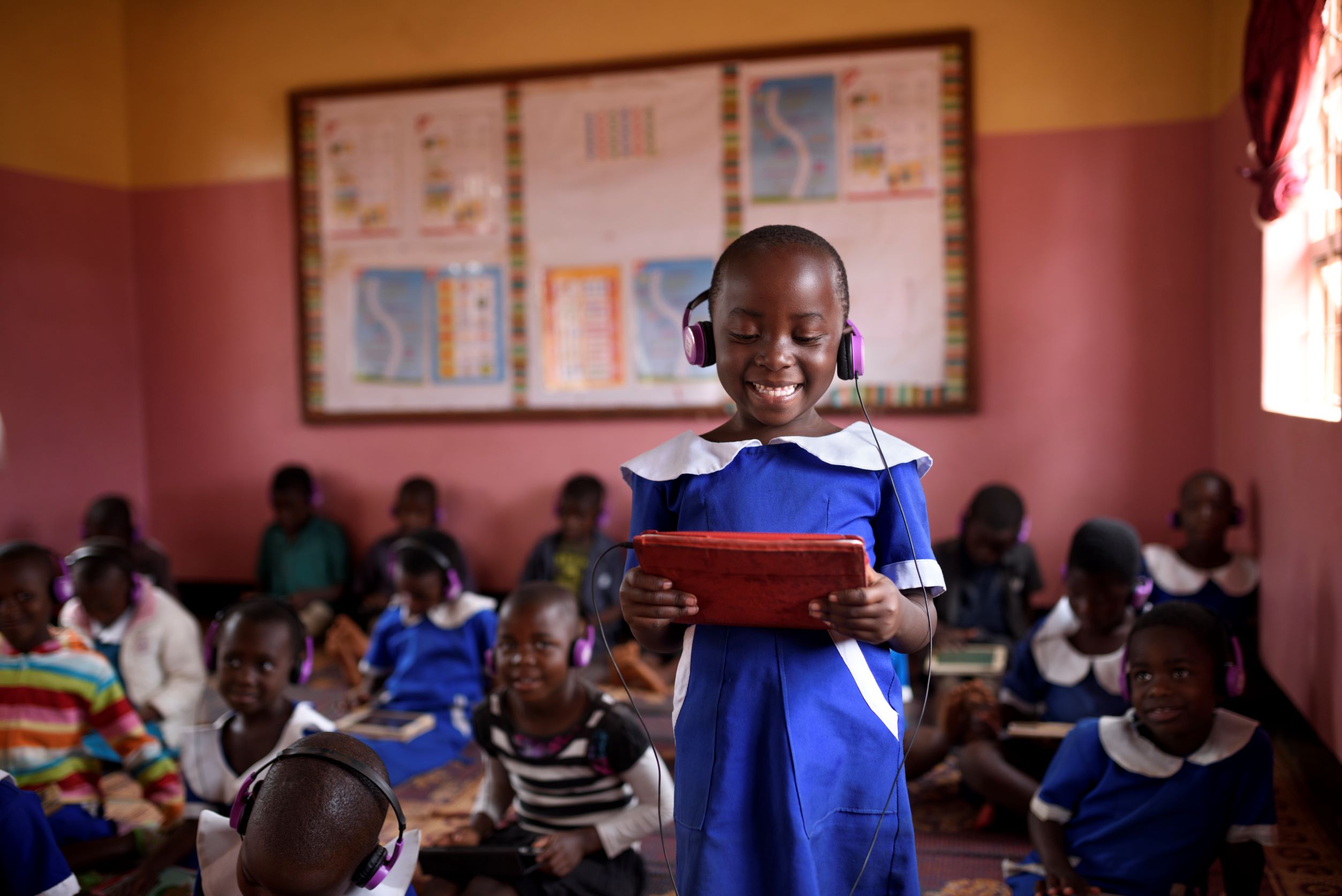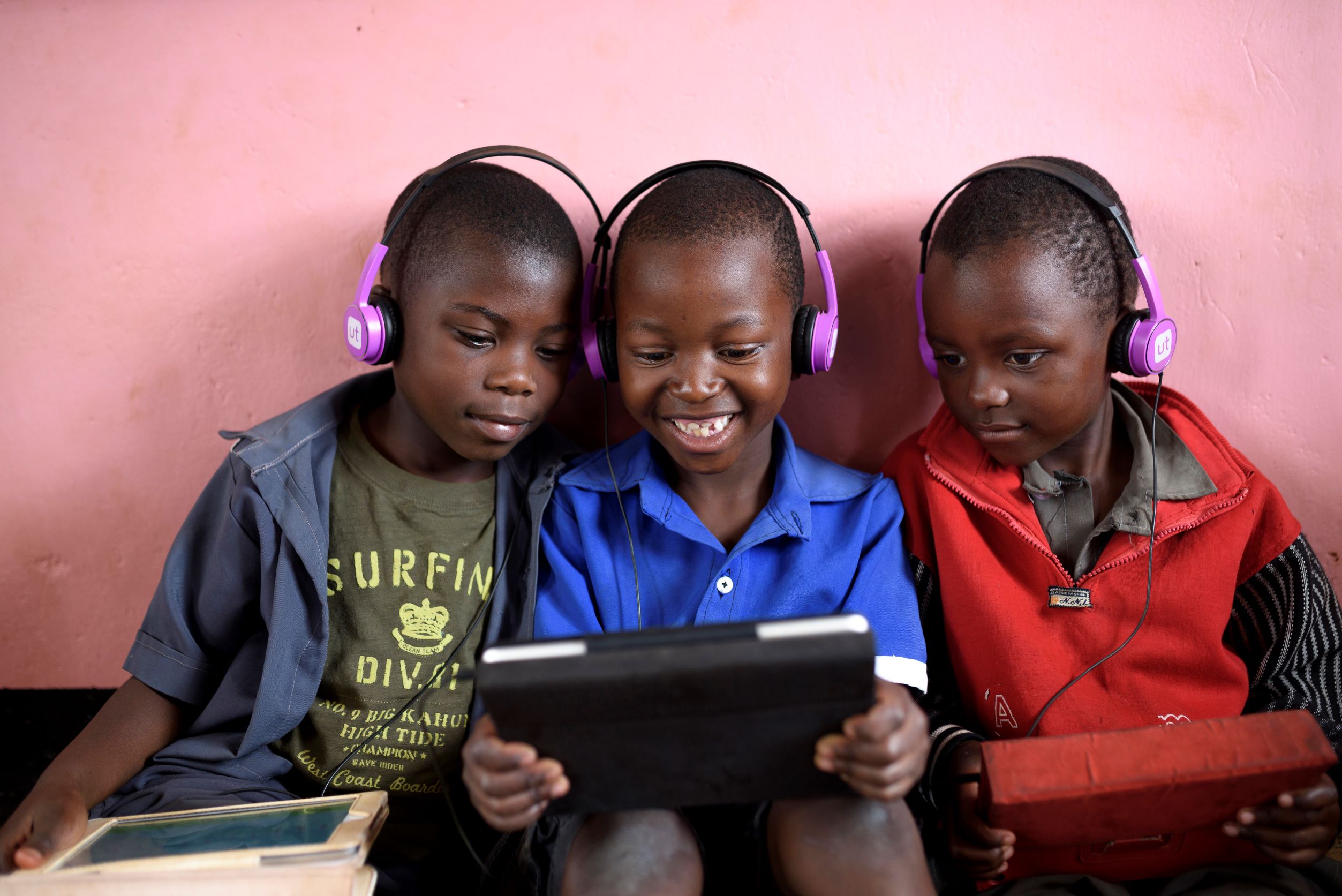Kenya 
How Imagine Worldwide Harnesses Technology to Enable Learning for Every Child
What We're Learning: Imagine Worldwide

Kenya 
What We're Learning: Imagine Worldwide

Nowhere in the world are children more central to global economic prosperity than in Africa, where they account for almost half of all inhabitants.
Despite significant progress in education, more than a third of African children are out of school, and those that do have access to school are too often in overcrowded classrooms, with up to 120 students per teacher. These challenges indicate that innovation and disruption are needed, and the answer can’t be more of the same.
With this context in mind, we invested in Imagine Worldwide in 2018. We wanted to learn: could a tech-enabled, self-paced approach to learning effectively drive positive learning outcomes? And if it does, what would it take to scale this approach to more learners, especially those on the periphery of formal education systems?
Our partnership with Imagine coincided with a pandemic that changed the world in significant and profound ways, especially with regard to how and where we learn. Rising COVID-19 infections, school disruptions and increasing economic pressures on families have only exacerbated pre-existing learning challenges. And as our systems grappled with addressing the effects of the pandemic, the need for innovative solutions like Imagine became even more urgent.
Online learning solutions have slowly emerged in recent years to accelerate learning across the continent. We have seen Imagine Worldwide distinguish itself by providing digital solutions for foundational learning that are offline, bringing equitable and quality learning to millions of children currently without connectivity. Imagine is able to provide essential digital learning tools through partnerships with software providers (including onebillion and KitKit to date), hardware providers and on-the-ground organizations in remote communities.

Photo credit: Jjumba Martin for Imagine Worldwide
Building the evidence base for tech-enabled, self-paced and engaging learning. Since inception, the team has conducted a series of experiments using different methods—from randomized controlled trials (RCT) to descriptive research—to assess effectiveness of their approach on learners from different contexts, including those who are in-school, out-of-school or in refugee settings (both emergency and stable).
Imagine’s recently concluded 2-year efficacy Randomized Controlled Trial (RCT) in government primary schools in Malawi found that despite COVID-related school closures, their learning solution produced statistically significant impact on literacy and math. Results showed that the intervention produced more than four months of additional literacy learning, even after 13 months of disrupted schooling due to COVID, and 72% attained emergent or fluent mathematics status. Fifty percent more children advanced on national literacy benchmarks and, importantly, girls and boys had similar positive results. We see these outcomes as very encouraging with significant future potential as Imagine feeds learning back to software providers to enable iterative improvement.
Children enrolled in the Imagine program were more excited about school, more likely to attend classes, and less likely to drop out. Parents showed more confidence in their children’s learning and became more involved in school level activities
Producing positive ripple effects beyond improved literacy and math skills. While Imagine’s program focuses directly on providing foundational literacy and numeracy to children, we have also seen promising examples of how the program’s effect rippled through the entire local learning ecosystem. Children enrolled in the Imagine program were more excited about school, more likely to attend classes, and less likely to drop out. Parents showed more confidence in their children’s learning and became more involved in school level activities and attended far more Parent-Teacher Association meetings than before. In some schools, management and reporting systems became more streamlined.
Grounding work in the local context is crucial to success. In our pursuit of applying a Justice, Equity, Diversity and Inclusion (JEDI) lens to our work, we aim to shape inclusive philanthropic practices and give priority to more locally driven solutions. Although registered as a US-based organization, Imagine connects and grounds its work in the local contexts where it works, intentionally hiring African leaders and shifting more decision-making to people closest to the community. Imagine also continues to foster strategic trust-based partnerships with local stakeholders, such as community and civil society leaders, and works closely with them to co-design their implementation plan in each area.
Imagine has even more ambitious plans to scale their work and reach more children. Over the next few years, Imagine aims to reach more than 250,000 learners in areas with scarce educational resources, while also continuing to build the evidence base for self-paced, technology-driven learning through more rigorous studies and expanding to additional countries across the continent. Through philanthropic investments and coordination with national governments, Imagine ultimately aims to create evidence-informed pathways at scale, serving millions of children globally.
Imagine Worldwide is an organization that does hard things. Where it’s easier to promote conventional products and services in hopes that they will be used, Imagine Worldwide breaks ground for its bold willingness for evidence generation, agile delivery, contextual tools and strong partnerships to serve children. We are excited to learn alongside them and continue supporting their vision to serve millions of learners in areas where other market actors can’t or won’t reach.